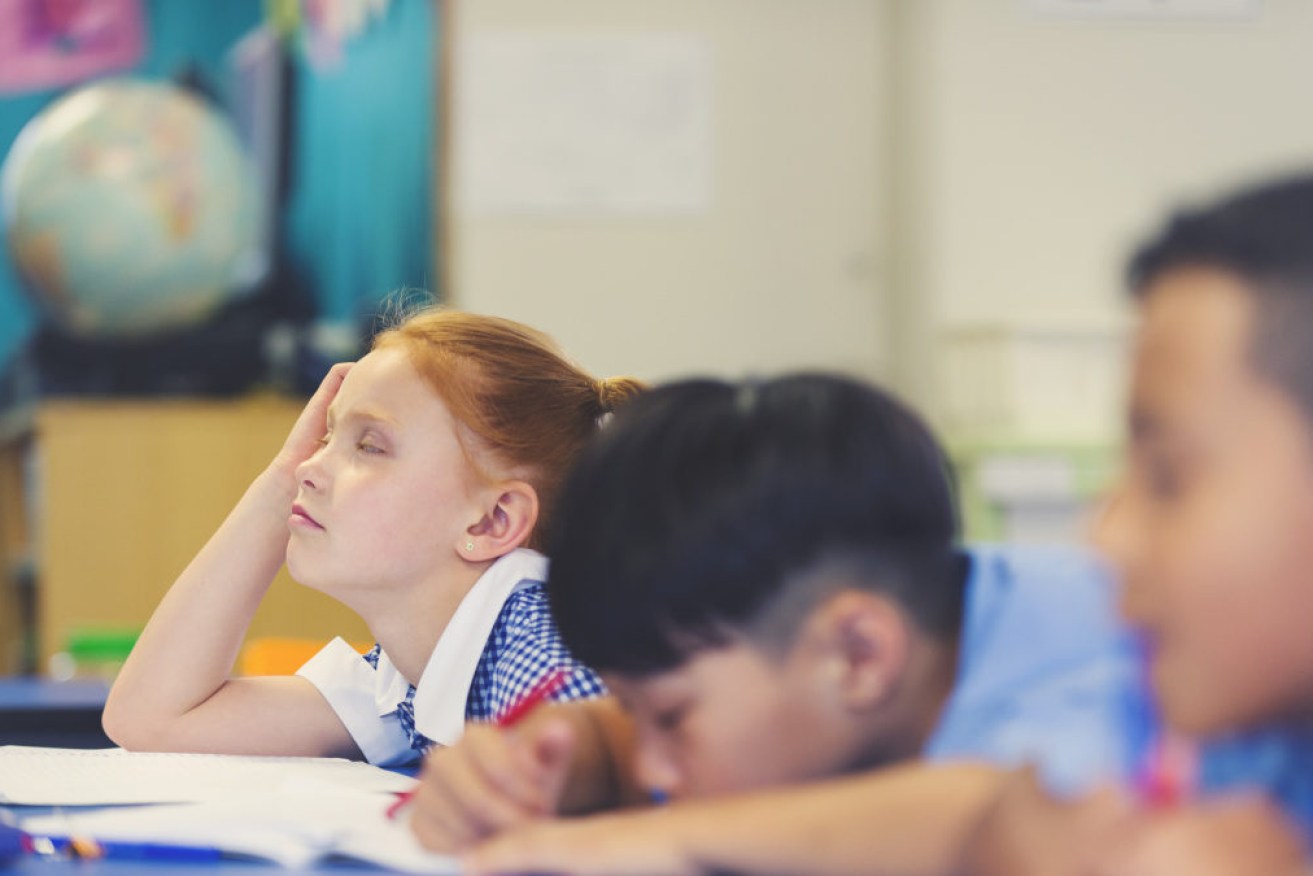Proposed tutoring blitz to help disadvantaged Australians students get back on track


Struggling students will need six months of extra tutoring to recover after COVID-19, experts say. Photo: Getty
Disadvantaged Australian students will need six months of hands-on tutoring to get their studies back on track after the coronavirus lockdowns, a new report says.
Across the country, tens of thousands of students who were already falling behind in class will have slipped even further back when lessons moved online during the crisis.
But the report, written by Julie Sonnemann and Peter Goss of the Grattan Institute, has suggested a way to close this gap.
The education consultants have proposed a $1.25 billion government-funded tutoring blitz targeting one million disadvantaged students.
The blitz involves sending 100,000 tutors into schools between now and Christmas to conduct intensive small-group sessions on reading and maths, three or four times a week.
“Governments are spending big to stimulate the economy, and some stimulus money should go to help disadvantaged students,” the report says.
“Teachers will be swamped for the remainder of 2020, and extra support will go a long way.”
It’s harder at home
For many young Australians, home was never a comfortable place to learn even before the pandemic began.
Add to that coronavirus-related stressor like job losses, health concerns or heightened tensions among family members, and remote learning becomes near-impossible.
Despite the best efforts of teachers, many disadvantaged students are likely to have learnt at about 50 per cent of their regular rate, losing about a month of education over a two-month lockdown, the report says.
Ahead of these students lies a mountain of classwork to catch up on, many will put it in the too-hard basket.
Speaking on a panel of economists run by the Women in Economics Network on Monday, Ms Sonnemann said: “If you look at the evidence around what works best for a range of students, it’s small-group tuition”.
“In small groups, you can target teaching to those particular students,” she said.
“It’s also a social relationship – it’s a lot more intensive than a regular classroom.”
Ms Sonnemann also suggested introducing extra social support in schools, like teacher training in mental health literacy “so they can spot students who may be struggling more than normal”.
Too much of a good thing
Statistics show children from less-educated backgrounds spent nearly twice as long in front of a computer screen at home, said panellist Stefanie Schurer, who researches the economics of human development.
This extra screen time can make it even harder for children to concentrate, leaving them further behind.
“When kids spend two to five hours a day in front of the screen, you see all these behavioural changes they develop like attention deficits and self-regulation deficits,” Professor Schurer said.
“For older kids when they have more than five hours a day, you see depressive symptoms and suicide ideation.”
Poor families can produce great learners
Although data showed some children from lower socio-economic families found it harder to learn than those from wealthier backgrounds, it didn’t mean they were set up to fail, Professor Schurer said.
“Even poor families invest a lot in their kids,” she said.
“They do a lot of cool stuff.
“Apart from the reading every day, you almost see no socio-economic gradient in all these activities, like going to the games, going to the library, or going to a music event.”
Professor Schurer said there were many factors influencing a student’s success later in life.
“I don’t think that disadvantaged kids per se are not fit for the future,” she said.
“The single most important predictor of later-life human capital development is whether your parents – especially your father – was engaged in your schooling.”







